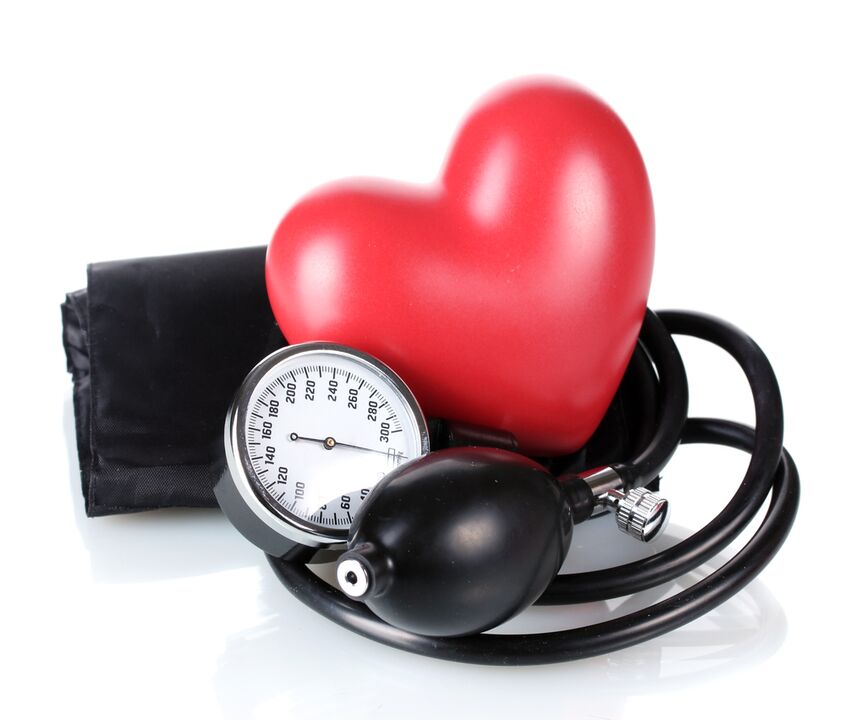
Hypertension is a condition in which the blood pressure level has increased steadily, which is fixed by repeated measurements. Increased pressure is a companion factor in many diseases and can cause the development of complications from the cardiovascular system.
Hypertension requires constant control and drug treatment. At the modern MedcentrService clinic you can undergo a thorough examination, if necessary, the doctor will choose effective therapy.
Varieties of arterial hypertension
The most common mixed form of hypertension, in which systolic and diastolic pressure is raised. Less often, only one type of blood pressure is increasing, which is characteristic of the elderly.
Due to the appearance, 2 types of arterial hypertension are distinguished:
Depending on the level of systolic and diastolic pressure, 3 degrees hypertension:
Important! If the first degree hypertension is not treated, then there is a high probability that the disease progresses. Very high pressure indicators can provoke a hypertensive crisis, which is filled with stroke.
Complications
With a long or severe course of hypertension, complications can occur. Among the most dangerous, they highlight:
Frequent complication is the hypertensive crisis. Periodic short -term pressure elevators are associated with severe headaches, vomiting and rapid heartbeat.
Diagnosis and examination with increased blood pressure
Hypertension can lead to serious complications, so it is important to diagnose the disease in a timely manner. First, you need to measure the pressure and examine the so -called target organs.
The steps needed to make the diagnosis of "hypertension" and calculate the severity of the disease:
Important! In the first signs of hypertension, you should definitely consult a doctor. Timely diagnosis and complete examination will allow you to choose effective treatment and avoid complications.
Preventing hypertension
To prevent hypertension, you should adhere to a number of simple recommendations:
Compliance with these simple rules will help minimize risks.
Rules for measuring blood pressure to diagnose arterial hypertension
To get an objective view when measuring the pressure, it is important:
To get an objective look, measure the pressure at home regularly and add data to the diary.
Hypertension is one of the most common diseases among people of different ages. Therefore, it is important to be responsible for your health and periodically examine your doctor.
Causes of hypertension
Sometimes blood pressure can increase in an absolutely healthy person - this is a natural reaction of the body to stress and physical activity. If in a calm state, at least with three control measurements, there is an increase in blood pressure to 140/90 mm Hg. Art. Or more, there is a probability of a diagnosis - hypertension.
The disease develops due to impaired mechanisms that regulate blood pressure. There are several reasons that provoke increased blood pressure:
There is often an increase in blood pressure with age. For people 20-40 years, normal pressure is 120/70-130/80 mm Hg. Art. , 40-60 years - 140/90 mm Hg. Art. , Over 60 years - 140/90–150/90 mm Hg. Art.
A very common cause of pathology is inheritance. Also, factors provoking high pressure include:
If a person has a history of at least one of the above risk factors, it is recommended to regularly suffer a physical examination and take all the necessary tests. It is important to consider that hypertension in the initial stage can develop without pronounced symptoms.
Symptoms of hypertension
Hypertension is a secret disease. In the initial phase, the pathology may not be shown on its own, but the asymptomatic course is no less dangerous. Therefore, it is necessary to measure blood pressure regularly and undergo a medical examination. This is especially important for patients from a risk group.
The first symptoms of hypertension:
With more severe hypertension, the above symptoms can be joined:
Often people write the appearance of hypertension symptoms to general fatigue. But when the first alarming bells appear, you should consult a doctor immediately. With increased pressure, the heart and kidneys work with maximum load, which can lead to hypertonic crisis, cardiac and renal failure.
Hypertension
Hypertension is a chronic disease, in the treatment of which a comprehensive approach is needed:
Pay attention! Only a doctor can prescribe drug treatment and choose the drug dose. You can't yourself -you are trending so that you do not worsen the situation even more.
This article has been posted only for the purpose of recognizing for cognitive purposes and is not a medical scientific or professional medical material. For diagnosis and treatment, consult a doctor.






















